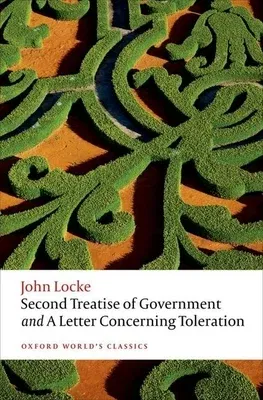'Man being born...to perfect freedom...hath by nature a power...to
preserve his property, that is, his life, liberty and estate.'
Locke's Second Treatise of Government (1689) is one of the great
classics of political philosophy, widely regarded as the foundational
text of modern liberalism. In it Locke insists on majority rule, and
regards no government as legitimate unless it has the consent of the
people. He sets aside people's ethnicities, religions, and cultures and
envisages political societies which command our assent because they meet
our elemental needs simply as humans. His work helped to entrench ideas
of a social contract, human rights, and protection of property as the
guiding principles for just actions and just societies.
Published in the same year, A Letter Concerning Toleration aimed to
end Christianity's wars of religion and called for the separation of
church and state so that everyone could enjoy freedom of conscience. In
this edition of these two major works, Mark Goldie considers the
contested nature of Locke's reputation, which is often appropriated by
opposing political and religious ideologies.
ABOUT THE SERIES: For over 100 years Oxford World's Classics has
made available the widest range of literature from around the globe.
Each affordable volume reflects Oxford's commitment to scholarship,
providing the most accurate text plus a wealth of other valuable
features, including expert introductions by leading authorities, helpful
notes to clarify the text, up-to-date bibliographies for further study,
and much more.

